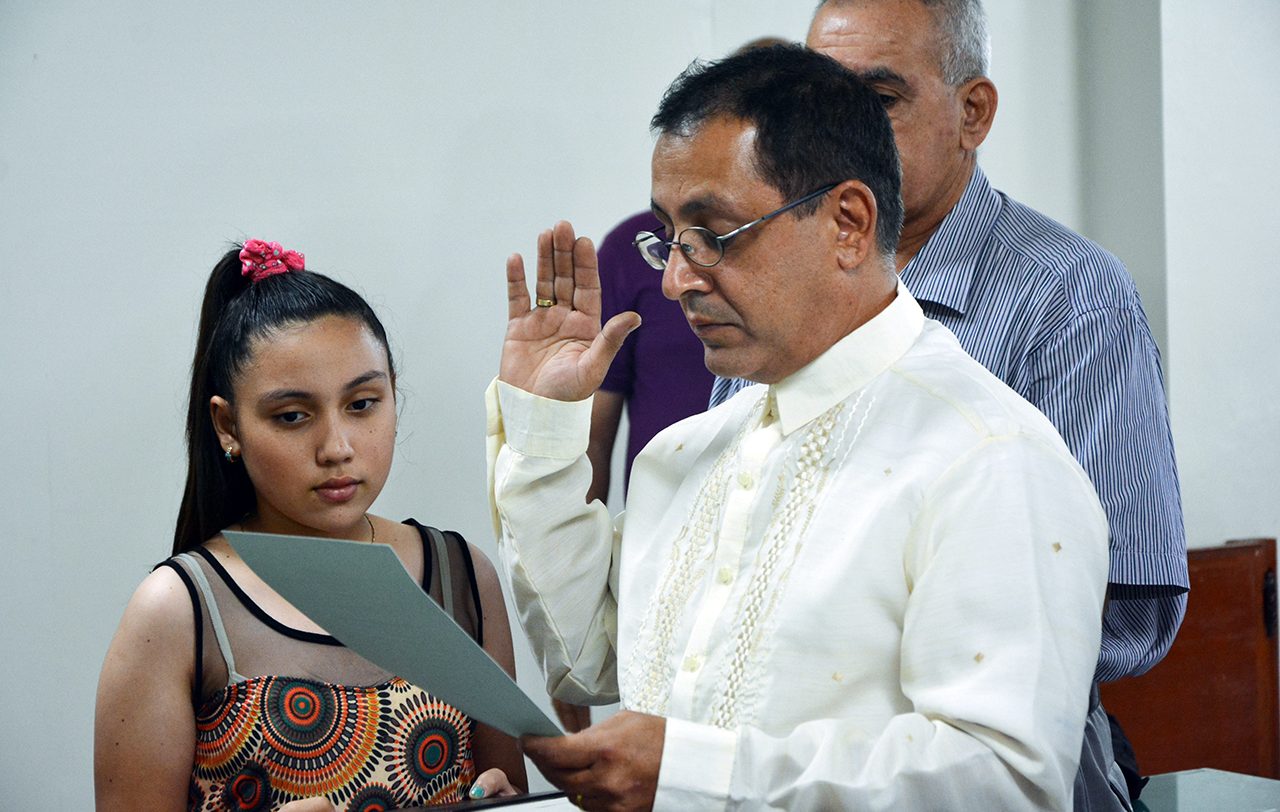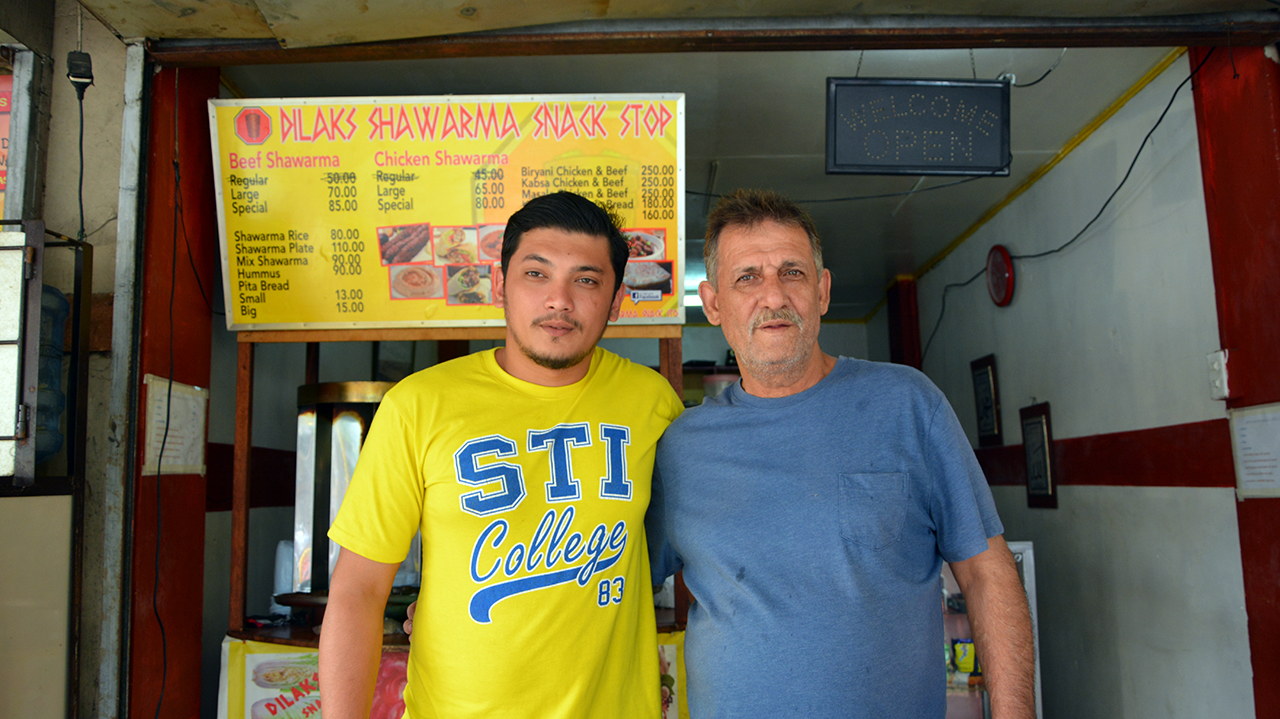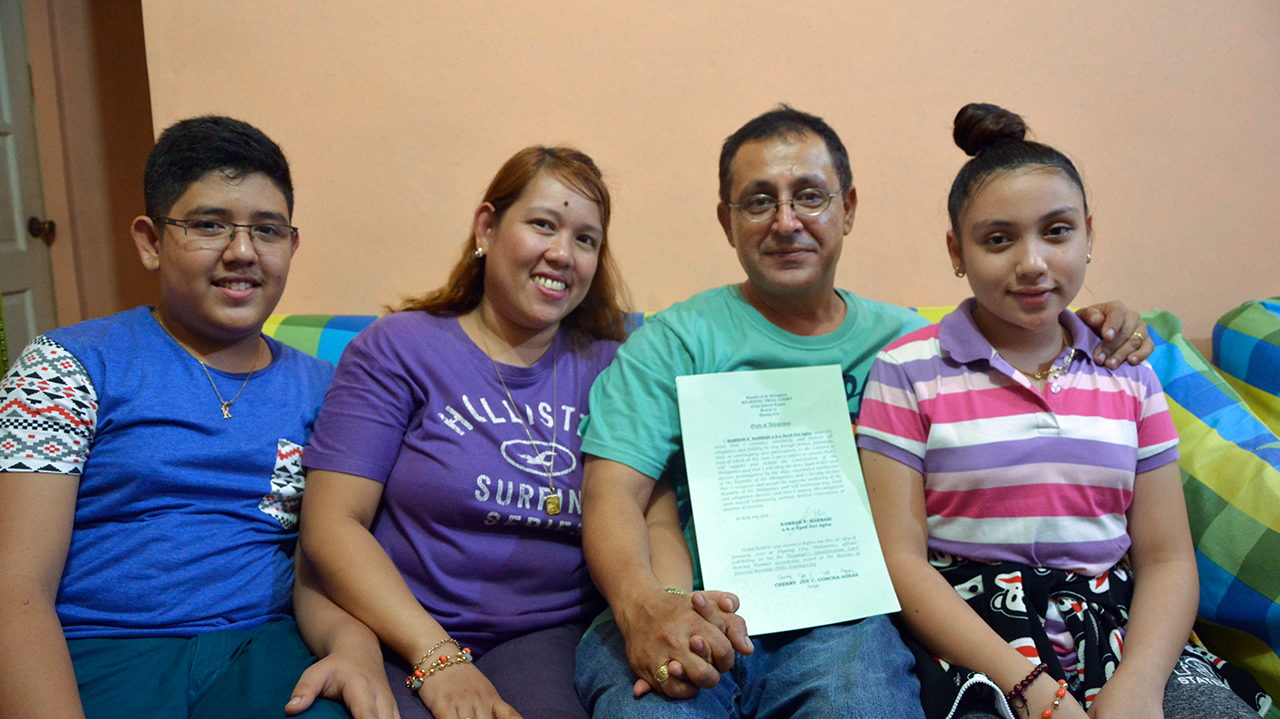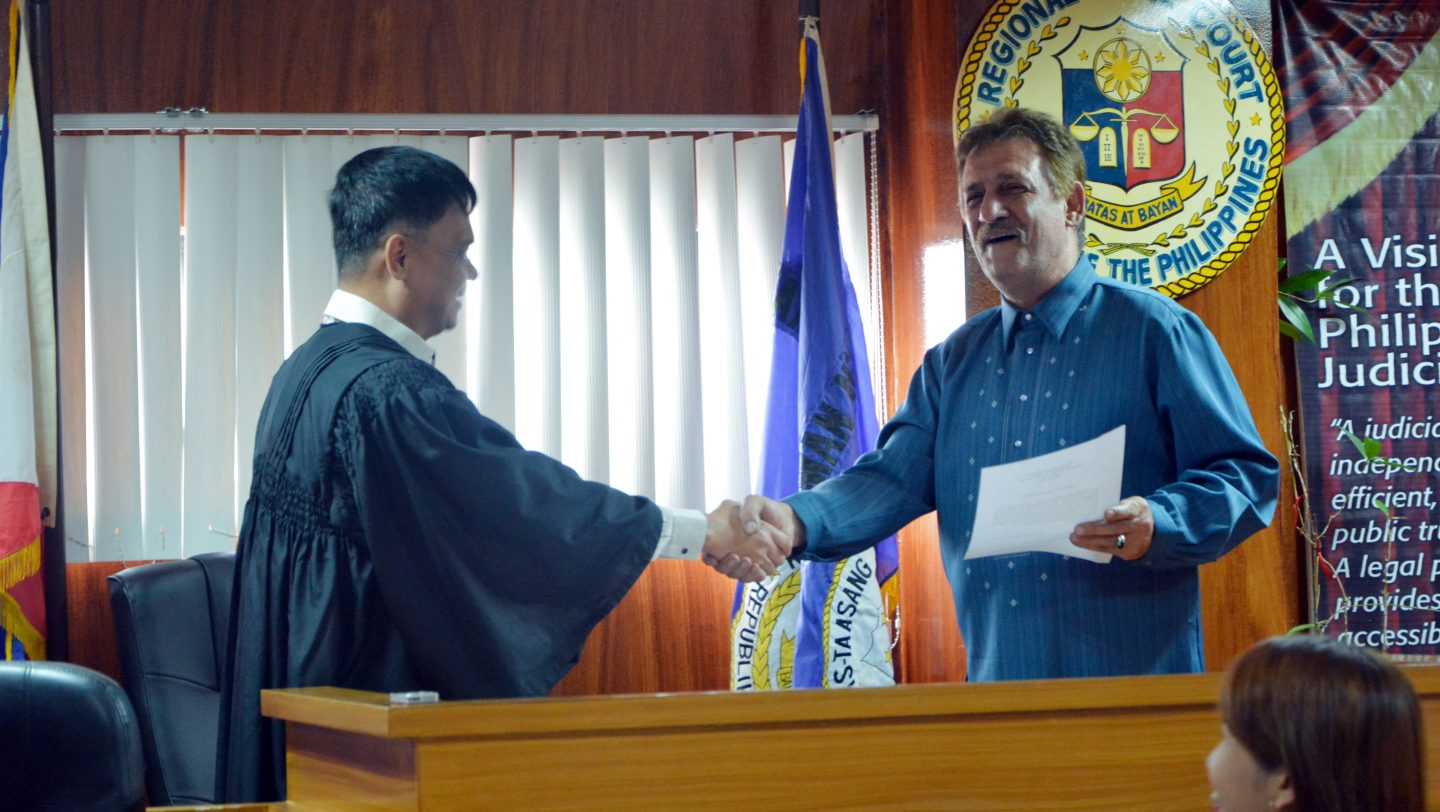From refugees to Filipinos: How two former refugees found a home in the Philippines
Read the journey of Kamran Karbasi and Maher Mohammad Al Raee, both former refugees who have now become full-fledged Filipinos.
Kamran Karbasi (left) at his repair shop in Dipolog and Maher Mohammad Al Raee (right) at his restaurant in Las Piñas. Photo: © UNHCR/F. Tanggol & A. Gonzales
After waiting for years on end in legal limbo, former refugees Maher Mohammad Al Raee and Kamran Karbasi can now exercise their rights as Filipinos. Maher and Kamran were naturalised as Filipinos in January 2017, decades after they first came to the Philippines after fleeing their home countries because of war and persecution.
Maher recounts fleeing his home, Palestine, for Yemen. He recalls having a good life in Palestine, one that was ruined in a snap. From Yemen, he flew without a visa to the Philippines, where he has been living for over three decades.
Kamran meanwhile had to flee Iran in 1987 at the height of the war between Iran and Iraq. “It was very dangerous because out of 100 young people who go to the war, 90 of them [end up] dead and six of them [become] disabled,” he describes. Realizing he needed to leave Iran, Kamran decided to flee to Pakistan. From there, he boarded a plane and presented himself to UNHCR, the UN Refugee Agency.
Now, after living in the country for many years, they have found a home in the Philippines.

Kamran takes his oath of allegiance to conclude the naturalisation process. Photo: © UNHCR/F. Tanggol
Humble beginnings
It wasn’t always easy for either of them. Both Maher and Kamran came to the Philippines with hardly anything to their name, but both of them persevered. After complying with legal requirements to be granted refugee status, both of them quickly learned the ropes of living in the Philippines, where they found solace and shelter.
Kamran, now 50 years old, has been in the Philippines for 27 years, while Maher, now 65 years old, has been here for 36 years. In all those years they’ve spent in the country, they’ve adapted to the Philippine culture, started their own families, and built their businesses to support them. Kamran lives in Dipolog City with his wife Cliji and their two children, Kennyji, 15, and Jasmin, 13. On the other hand, Maher resides in Las Piñas with his wife Raquel and their four children, Khalid, 23, Abdullah, 22, Sabrina, 20, and his youngest Ibrahim, 17.

Maher, pictured here with son Khalid, manages their family’s shawarma restaurant in Las Piñas. Photo: © UNHCR/A. Gonzales
They became self-made businessmen to provide for their families. Maher established his restaurant business, while Kamran put his background in electronics to good use with his repair shop. Through their businesses, Maher and Kamran have sent their children to school, one of the requirements for being granted Filipino nationality.
Naturalised as Filipinos
With their genuine desire to be Filipino and a father’s will to provide for their family, both Kamran and Maher were able to pull through, but not without meeting obstacles along the way. For Kamran, especially, the path towards naturalisation was not easy, as his petition was appealed in a long procedure that involved the Court of Appeals and the Supreme Court.
Chief State Counsel Atty. Ricardo Paras from the Department of Justice elaborates why such petitions can take a toll on refugees: “The legal obstacles are: number one is cost. Number two is the length of time during which [the refugees] have to wait.” However, he says, the 10-year residency requirement can be beneficial for refugees as they can mingle with the Philippine society and embrace the Philippine culture during this period.
Once their petitions were finally granted, spirits were high as Kamran and Maher took their separate oaths of allegiance on 19 and 25 January, respectively.
Kamran describes the feeling of being a naturalised Filipino. “I feel free now,” he says. “I feel no more worries. I can settle now. I can concentrate more on my children and to support them.”

Kamran with his wife and children in Dipolog City. Photo: © UNHCR/F. Tanggol
Their hopes and dreams are simple and reflect the great love they have for their families. “I don’t have too much expectation. I just want to support my family, that’s it,” Kamran says. “I just want to have a good future for my children, that’s all I want. Nothing else.”
Maher shares the same sentiments. “I want my children to have a good life. I plan to leave the business to them. I want them to have land and a house so that they will have no problems in life,” he says.
Both have expressed their intentions to bring their families out for overseas vacations the moment they’ve acquired their passports—one of the many rights they can now enjoy as naturalised Filipinos.

Kamran’s oath taking of allegiance is administered after more than three decades since he came to the Philippines. Photo: © UNHCR/A. Gonzales
Their lives tell the stories of courage and resilience and now Maher and Kamran have found a permanent home in the Philippines.
As for refugees who may be facing the same realities as Maher and Kamran once did, they have messages to share. For Kamran, it’s as simple as, “love your neighbour.” Maher has more words to say: “Work hard, do good. Don’t fool around in the Philippines, because the Philippines is beautiful.”
